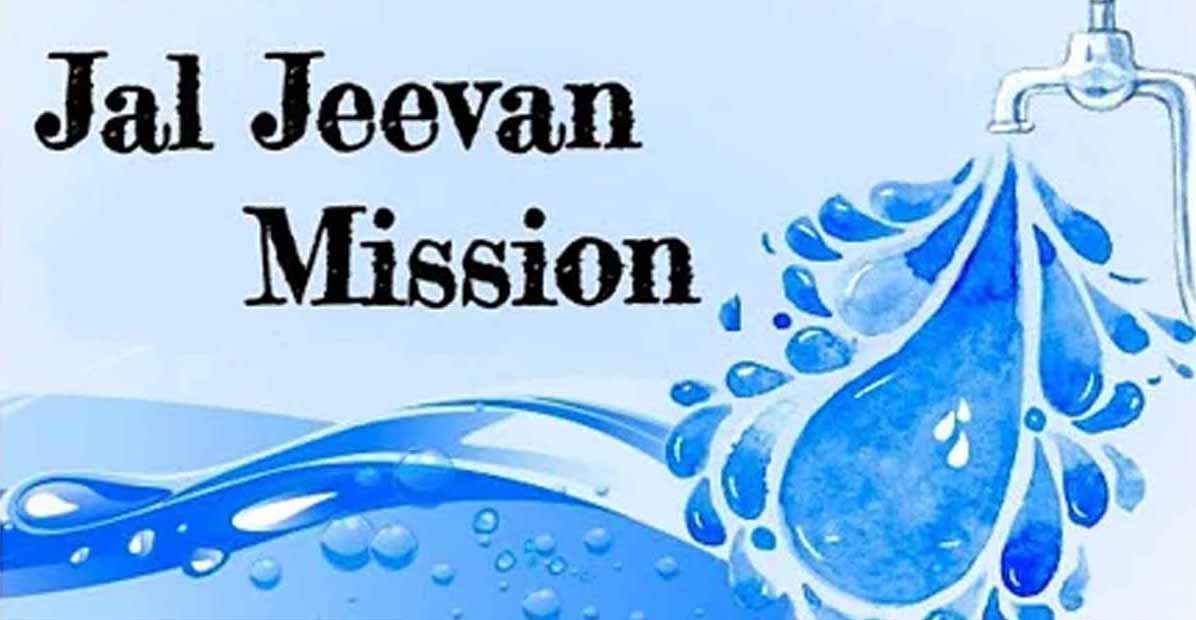Large number of schools, AWCs lack piped water facility
*Poor utilization of funds, very less field visits pointed out
Mohinder Verma
JAMMU, Mar 12: The Standing Committee on Water Resources comprising 31 Members of Parliament has painted gloomy picture about the implementation of Jal Jeevan Mission (JJM) and Swachh Bharat Mission-Gramin (SBM-G), the flagship schemes of the Union Ministry of Jal Shakti, in the Union Territory of Jammu and Kashmir and Union Territory of Ladakh.
Moreover, it has asked the Department of Drinking Water and Sanitation of the Jal Shakti Ministry to initiate all possible steps to ensure that timelines set for these two Union Territories for achieving the targets under these two schemes are strictly adhered to in order to achieve the objectives.
The objective of the JJM is to enable every rural household to have assured potable water supply through Functional Household Tap Connection (FHTC) while as SBM-G is aimed at achieving Open Defecation Free villages and improve the level of overall cleanliness through solid and liquid waste management activities.
In its detailed report tabled in the Parliament recently, the Standing Committee on Water Resources has pointed out poor utilization of funds, large number of schools and Anganwari Centres remaining without piped water supply, very less field visits by the officers of the concerned departments of these Union Territories and lack of focus on important aspects of these two schemes.
As far as Jal Jeevan Mission is concerned, the Parliamentary Panel has pointed out that an amount of Rs 681.77 crore was allocated to the Union Territory of Jammu and Kashmir during the 2020-21 financial year and against this Rs 53.72 crore were released.
However, the utilization as on February 15, 2021 is merely Rs 14.4 crore as such only 7.88% of the Central allocation has been utilized. The Standing Committee has also pointed out that expenditure under State Share has not been reported by the concerned authorities of the Union Territory of Jammu and Kashmir.
About Union Territory of Ladakh, the Parliamentary Panel has pointed out that an amount of Rs 352.09 crore was allocated under Jal Jeevan Mission but only an amount of Rs 0.78 crore was utilized as on February 15, 2021.
Though JJM is targeted to be completed in the year 2022 in both the Union Territories yet only two districts of J&K have become “Har Ghar Jal districts” while as performance of Ladakh UT in this regard is zero.
The Standing Committee has further pointed out that against total 18.16 lakh households in J&K UT which fall in the criteria of Jal Jeevan Mission only 9.38 lakh have been provided with tap water connections as on February 15, 2021 as such there is achievement of only 51.66%.
Similarly, against total 0.44 lakh households in Ladakh UT only 0.03 lakh have been given tap water connections till February 15, 2021 as such there is achievement of only 7.57%. In such a scenario whether the target of 2022 would be met by the concerned authorities of J&K and Ladakh UTs remains a million dollar question.
Under JJM up to 2% of the allocation can be utilized for carrying out water quality monitoring and surveillance activities and Department of Drinking Water and Sanitation of the Union Ministry is assisting and facilitating States and UTs in setting up, upgradation, improving the functioning and strengthening of drinking water quality testing laboratories by providing policy guidelines, technical and financial support.
In Jammu and Kashmir there are 20 district level, 2 block level and 65 Sub-Division level drinking water quality testing laboratories but not even one has received the NABL accreditation.
Similarly, there are two district level and 4 Sub-Division level drinking water quality testing laboratories in Ladakh Union Territory but all are without any NABL accreditation.
The Standing Committee has further pointed out that against total 24,149 Anganwari Centres in the UT of J&K, 20,193 have received tap water supply. Likewise, against 22,492 schools, 18,801 got tap water supply. Similarly, in Ladakh UT against 1157 Anganwari Centres only 459 have received tap water supply and against 981 schools only 465 got tap water supply.
As far as SBM-G is concerned, in Jammu and Kashmir UT only six Gram Panchayats have created infrastructure for solid and liquid waste management during the last three years.
It has again been pointed out by the Standing Committee that unspent balance under SBM-G during 2018-19 in J&K was Rs 33.60 crore while as the same increased to Rs 97.86 crore in 2019-20. Similarly, unspent balance under JJM during 2018-19 was Rs 35.24 crore and the same increased to Rs 148.92 crore in 2019-20.
Despite such a dismal performance in the implementation of schemes, the field visits by the concerned authorities remained at the lowest ebb. Accordingly, the Standing Committee has asked the Department of Drinking Water and Sanitation of the Jal Shakti Ministry to initiate all possible steps to ensure that timelines set for these two Union Territories for achieving the targets under these two schemes are strictly adhered to in order to achieve the objectives.
Trending Now
E-Paper


